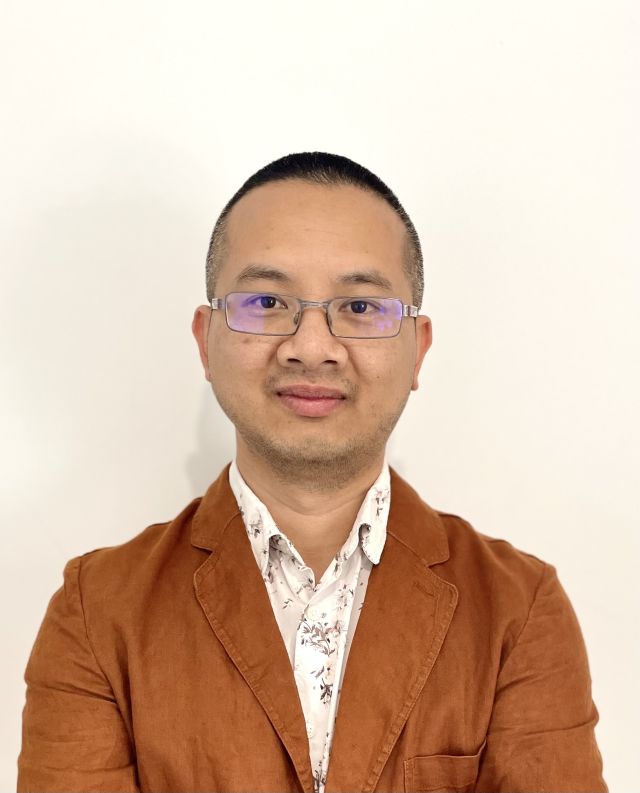CPOS Seminar: "Functional π-conjugated molecules: from visible light photoinitiators for photopolymerization process to charge transporting materials in organic and hybrid solar cells"

Speaker: Thanh-Tuân BUI, Associate Professor, LPPI - IST - CY Tech, CY Cergy Paris Université
Abstract: In this talk I will present our recent activities on the development of functional π-conjugated molecules for photopolymerization and photovoltaic applications.
Classically, photopolymerization occurs with a photoinitiating system under UV light. However, this raise the safety and energy consumption concerns related to the use of high energy luminous irradiation sources. In addition, the low light penetration of UV light within the photocurable resins is another major concern. In this context, visible light photoinitiators could successfully address these issues. Visible light allows for a deeper light penetration within the material and therefore resulting in a more complete curing of thicker materials containing fillers for access to composites. In addition, visible light photoinitiators offer the possibility of employing lower photoenergy light sources (LED). Special attention have to be paid on the photoinitiating ability and the polymerization kinetic should remain high in order to be able to compete with the traditional UV photoinitiators.
There has been considerable progress over the last decade in the development of the solid state hybrid photovoltaics, especially in the perovskite based solar cell technologies with reported performances now surpassing 25% power conversion efficiency for single junction device and approaching 30 % in Perovskite/Si tandem system. In these system, the use of a hole transporting material is essential for high performance devices. Most popular HTMs are Spiro-OMeTAD and polytriarylamine (PTAA). Although effective, devices made from these materials still present some issues such as doping additives, thermal stability, etc. Herein I will outline our recent research on development of alternative HTM materials with effective and scalable synthetic procedures for devices with enhanced device efficiency and thermal stability.
Bio: Thanh-Tuân BUI was born (1983) and grew up in Vietnam and did his higher education in France. He obtained his “Diplôme d’Ingénieur” in organic chemistry of the “Ecole Nationale Supérieure de Chimie de Montpellier” in 2007 and his PhD in Molecular Chemistry of the University of Toulouse in 2010. He did his doctoral thesis at the “Laboratoire de Chimie de Coordination du CNRS” in Toulouse, working on electron acceptor materials for OPV. During his PhD, he had spent two research stays at the Lodz University of Technology (Poland, 2009) and at The University of Tokyo (Japan, 2010). After a short postdoc at the Département de Chimie Moléculaire / Université Grenoble Alpes, he joined the CY Cergy Paris Université (formerly Université de Cergy Pontoise) in 2011 as Postdoctoral Researcher and Lecturer. He has been Associate Professor at the same establishment since September 2013. He had been visiting researcher at Soochow University (China, 2014) and Sungkyunkwan University (Korea, 2016). He defended his HDR (Habilitation à diriger des recherches) in January 2022 at CY Cergy Paris Université. His main research interests are functional conjugated molecules (organic charge transport materials for photovoltaics, photoinitiator for photopolymerization). Up to date, he has co-authored 56 research articles and 2 book chapters. He has supervised 7 PhD students and 2 postdoc researchers and more than 10 undergraduate and master students. Recently, he has been awarded the 4-Year PEDR Prize from CY Cergy Paris Université for the quality of his research and doctoral training.